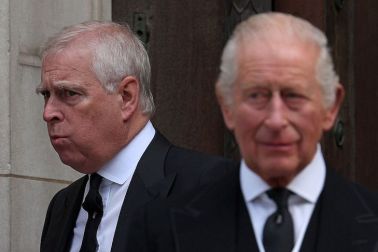Home
President Barack Obama arrived in Britain for a state visit, having fled Ireland a day early lest the ash cloud from the Grimsvötn volcano in Iceland engulf his aeroplane. In Ireland he met his eighth cousin at Moneygall, where he drank a pint of Guinness, said ‘I’ve come home to find the apostrophe we lost somewhere’, and got his armour-plated car stuck on a bump in the road. In London he stayed at Buckingham Palace, attended a state banquet and addressed Parliament. In a joint newspaper article with David Cameron, the Prime Minister, he wrote: ‘Ours is not just a special relationship, it is an essential relationship — for us and for the world.’ Hundreds of flights were cancelled in Scotland as the ash cloud blew into its airspace.
Ryan Giggs, the Manchester United footballer, was named in the House of Commons, under parliamentary privilege, by John Hemming, a Liberal Democrat MP, as someone who was the subject of an injunction against the reporting of an alleged affair with Imogen Thomas, a former Big Brother contestant. Earlier he had been named by 75,000 people on Twitter. David Cameron said that the state of the law on privacy was ‘unsustainable’. John Whittingdale, a Conservative MP, was to chair a parliamentary committee inquiring into it. The Court of Appeal ruled that the conviction of George Davis for armed robbery and wounding in 1975 was unsafe; he had been released by royal prerogative in 1976. High winds in Scotland destroyed hundreds of acres of soft-fruit polytunnels.
Higher than expected public borrowing in April took the government’s debt to a record £910 billion, 60 per cent of GDP. Marks & Spencer’s pre-tax profits rose by 13 per cent to £714 million. A bomb went off at a branch of Banco Santander in Londonderry, the work of republicans. The Commons energy select committee urged the government to support drilling for shale gas in Britain. David Campbell Bannerman, an MEP, left Ukip to rejoin the Conservative party. Kathy Kirby, whose ‘Secret Love’ reached No. 4 in 1960, died aged 72. Research at the London School of Hygiene and Tropical Medicine found that vuvuzelas can spread diseases such as tuberculosis.
Abroad
Christine Lagarde, the finance minister of France, received support from George Osborne, the Chancellor of the Exchequer, to become the new head of the International Monetary Fund. Its previous head, Dominique Strauss-Kahn, was persuaded to resign after being charged with attempted rape in New York, where he was freed from prison on bail of $1 million. The opposition in Greece refused a government invitation to support an austerity programme. The credit-rating firm Moody’s said debt restructuring for Greece would constitute a default. In Spain, young people sat down in the Puerta del Sol in Madrid to complain about youth unemployment of 45 per cent. Local elections proved a striking defeat for the Socialist government, which lost control of strongholds such as Castile-La Mancha and Seville. In Peru a species of leech was discovered that lives up people’s noses.
Britain and France decided to use attack helicopters as part of Nato air raids on Libya, or so the French said. Libyan rebels accepted an American invitation to open an office in Washington. Hosni Mubarak, the former President of Egypt, and his two sons are to be tried over the deaths of anti-government protesters. The International Atomic Energy Agency said that the Syrian site bombed by Israeli jets in 2007 was ‘very likely’ a nuclear reactor. Some 44 people were shot dead during demonstrations in Syria after Friday prayers, bringing the total killed to perhaps 850 since March. The Taleban attacked a naval air force base in Karachi, killing 16. The Sri Lanka cricket team turned down an offer to tour Pakistan in October because of the security situation. Garret FitzGerald, the former prime minister of Ireland, died, aged 85. Japan deported the comedian Russell Brand.
Benjamin Netanyahu, the Prime Minister of Israel, declared in the United States that there could be no return to the ‘indefensible’ 1967 borders, which Mr Obama had said should form the basis for a Palestinian state. Salam Fayyad, the Palestinian Prime Minister, survived a heart attack while visiting Austin, Texas. A tornado cut a path half a mile wide through Joplin, Missouri, killing 120 people. Thousands fled fighting around the town of Abyei on the border of northern and southern Sudan, which are due to become separate countries in July. Harold Camping, a radio evangelist who said the world would end on 21 May, revised his forecast to 21 October. CSH





Comments